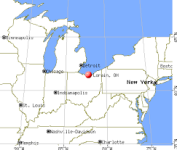There have been fifteen years between Pat Conroy's
Beach Music (1995) and his latest novel,
South of Broad (2009). This is the first of his books that I've read, and the title in itself is intriguing. Googling won't do much good, and in fact will probably even confuse, as there's a rather odd online description of the expression by a writer who has obviously gotten the wrong end of the stick. 'South of Broad' is an expression used to describe where the Charlestonian aristocracy live - and also their mindset, as the same writer would have known if she'd given enough attention to the novel. And as the protagonist's father says: 'South of Broad is a conspiracy of platelets, son: blood and breeding are all that matter there. No, that's not true: there's got to be a truck full of money somewhere near the blood bank.' Yes indeed: 'South of Broad' is an expression Conroy uses to describe a very small but very wealthy area on the Charleston peninsula, namely that from Broad Street down to the Battery, where the peninsula joins the Atlantic.
And the protagonist is one Leopold Bloom King, named after the protagonist in
Ulysses, on which his mother, Dr Lindsay King, wrote her thesis. The book also begins on Bloomsday: 16 June 1969, a tremendously important day when Leo sets free two orphans handcuffed to a chair (surely some Beckett in there?), learns his mother was a nun some time before, and after having no friends at all, makes a number of them who will be remarkably significant and faithful to the end of the book. And the book's final word is 'Yes', which is the final word in
Ulysses, the final word spoken by Molly, who has the same forename as the woman whom Leo has loved throughout
South of Broad.
And it's a long book, containing more than 500 pages. Is it worth reading? Conroy has stated that his earlier novel,
The Great Santini (1976), had its beginning in asking why he (Conroy) wanted to kill his father, and
The Prince of Tides (1986) its beginning in asking why Conroy's eldest sister was sent mad by their parents, but
South of Broad doesn't appear to begin with any question, and seems to be based on parts of characters the author had known.
South of Broad involves incest and other parental abuses, murder and other violence, suicides and various forms of madness, and on the surface doesn't look too good as literary fiction: parts of this are overwritten, there are too many coincidences, characters are sometimes unbelievable, there is purple prose, so maybe this is just popular fiction masquerading as literary fiction?
No, not at all, and in many ways this is a brilliant novel that attempts to emphasize the similarities - as opposed to the differences - between black and white, rich and poor, and various social classes in general. But Pat Conroy is not a major author, and I don't think he'd ever pretend to be, although he is still very underrated as a serious novelist.
BLOG
